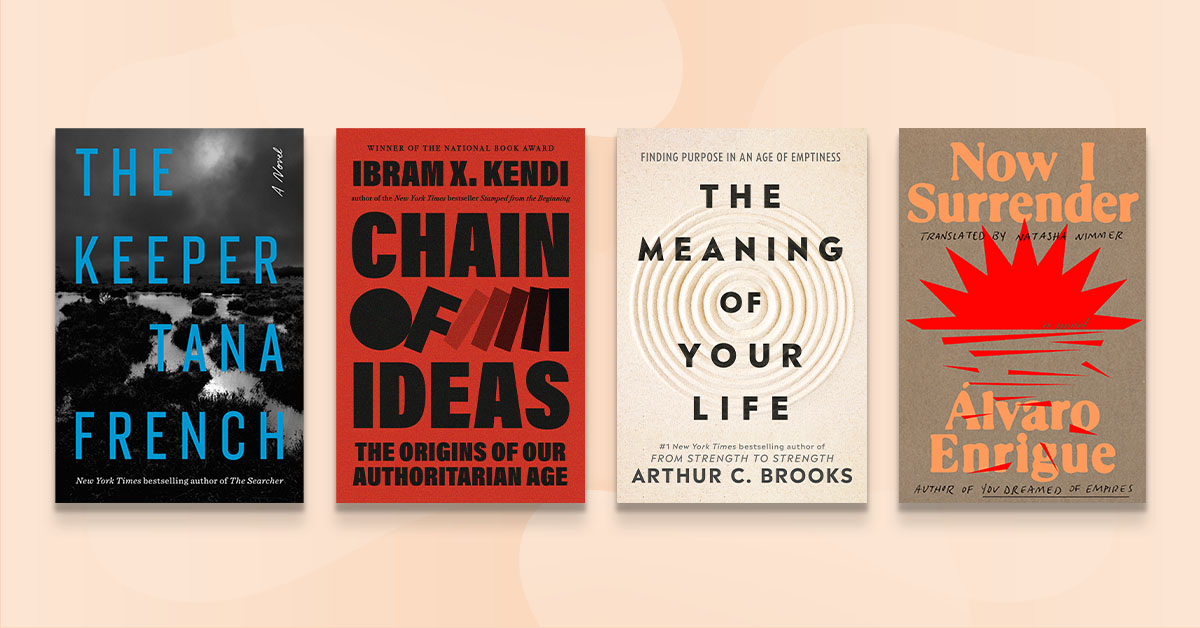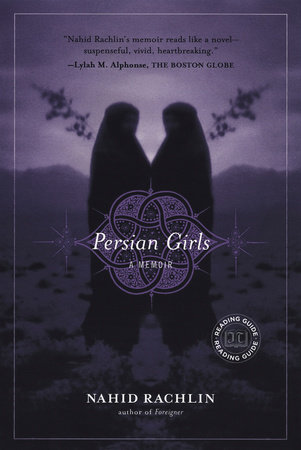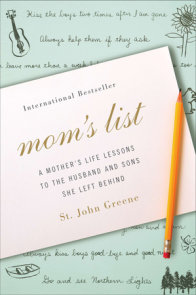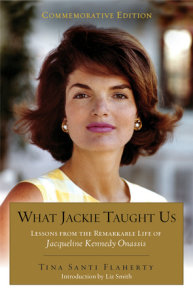READERS GUIDE
Questions and Topics for Discussion
DISCUSSION QUESTIONS
A theme in Persian Girls is belonging. Growing up, the author feels like she does not belong in Iran. But she feels likewise in America, and talks about “the ambivalent feelings that had plagued me over the years in America, being neither here nor there.” [pg. 202] She adds: “I had finally found freedom in America, but there was a hole inside me, a lack. I didn’t feel either Iranian or American.” [pg. 203]Why does she feel like she does not belong in Iran? Why does she feel like she does not belong in America? In your own life, do you have similar challenges of trying to bridge two cultures, two religions, or two other conflicting worlds? If so, have you managed to achieve “belonging,” or are you still struggling to find that place?
Pari begs her father to help her divorce her first husband, Taheri, saying: “Aren’t I entitled to some individual happiness?” Her father responds: “You’re under the influence of those American movies. Their idea of individual happiness is selfish and it has hurt their sense of family life. That’s why so many Americans are miserable, lonely, killing themselves with drugs and alcohol. What we have is superior; each person should think of the happiness of the whole.” [pg. 171]What do you think of the father’s statement? Does the pursuit of individual happiness—whether it’s freedom from a bad marriage, true love, education, pleasure, or other—ultimately take away from family, community, society? Does this apply in America as well as in Iran? Can you name examples from your own life in which you chose individual happiness over the happiness of the whole, and vice versa? How can one achieve a balance between the two, if at all?
Another theme in Persian Girls is destiny. When the author is a young girl, her adoptive mother, Maryam, says to her: “It was your destiny to be my child. As soon as a baby comes into the world an angel writes its destiny on the baby’s forehead. Sometimes if a person pleads with God, he might decide to tell the angel to change the writing.” [pg. 25] Later, the author says: “I hadn’t accepted that as a child, and now, too, I believed that it was my own sheer determination that had enabled me to come to America. I should be able to determine what I would do next.” [pg. 150]Do you believe in destiny? How much do you feel that destiny played a role in the author’s life, if at all? How much do you feel that destiny has played a role in your life, if at all?
Throughout Persian Girls, there are references to Iranian women and girls having to hide or downplay their beauty, and even being flogged for wearing lipstick or nail polish or for not observing the hejab properly. [pg. 254] In contrast, the author discovers a serious beauty culture in America, at Lindengrove College. Of her classmates, she says: Before mixers with boys from other colleges, “the bathrooms on my floor were filled with girls checking their makeup, spraying perfume on their necks and arms, fluffing up their hair, and examining their dresses one more time.” [pg. 149] There are even beauty contests.What do you think of the two cultures’ attitudes about women and beauty? Do you feel that both Iranians and Americans “judge a book by its cover” in contrasting yet similar ways?
In what ways do the women in Persian Girls support each other? In what ways do they fail to support each other? How do men come between the women, if at all? For example, what do you make of the scene in which Nahid and her friend Mahvash are temporarily estranged from each other because they desire the same man, the writer Ardavani? [pg. 114] What do you make of the author’s observation about her Lindengrove classmates: “If a student had plans with a female friend and then a boy called and asked her out at the same time, she would automatically accept the date and cancel plans with the girlfriend.” [pg. 143] Have you had similar experiences in your own life?One of the author’s college classmates, Linda, says of her parents: “They sent me to Lindengrove to groom me for the right kind of husband. The college is just a finishing school.” [pg. 154] Indeed, at Lindengrove, the author’s home economics teacher teaches the students how to set a table and seat guests, and also “charm,” which the author describes as “not much different from taarof in the Iranian culture. We should always say, ‘Yes, ma’am,’ she said, when addressing a woman older than ourselves; we should write a thank-you note to our hostess and it should be phrased in a certain way.” [pg. 142] Also: “Smiling was compulsory. One girl in my dormitory said, ‘Smile,’ every time we passed in the hall.” [pg. 143]In these examples, do you see parallels between Iranian and American expectations of female behavior? Are there other such examples in the book?
The author’s parents refuse to let Pari marry Majid, the man she loves. In reaction, the author says: “I wondered if Father and Mohtaram were evil. But my grandmother, whom I loved so much, had done the same to her daughters, had forced them to marry men she and my grandfather chose. They themselves were victims of the oppressive system that dictated to people how they should feel and live their lives.” [pg. 69]How much did culture and religion shape the choices the author’s parents made for their children? If her parents had been born in another time and place, would they have made different choices? For example, would they have allowed the author to stay with her adoptive mother, Maryam, instead of bringing her back to Ahvaz against her will? Would they have allowed their daughters to pursue their dreams and marry for love? In your own life, how much do you feel that culture and religion shape your choices, if at all? How much do you feel that culture and religion shaped your parents’ choices for you?
After her father’s death, the author says: “He had had so much power over me, had forcibly changed the course of my life, but ultimately much of it had been for the good.” [pg. 242]What do you think she means by this statement? Do you think that in hindsight, she agrees with the choices he made for her? Do you think that she has regrets about defying some of her father’s choices, for example, not returning to Iran after graduating from Lindengrove? Or do you think that her statement is simply a testament to the power of forgiveness? Did anything about the author’s relationship with her father remind you of your own relationship with your father?
After the author’s father forces her to return to Ahvaz, her biological mother, Mohtaram, is cold and distant to her. This goes on for many years. But at one point, the author overhears Mohtaram saying, “Nahid treats me like an enemy,” and wonders: “Was it possible that I had started the pattern of coldness between us? Was it me who had rebuffed her that first day, years ago, when Father brought me home?” [pp. 99-100] The author also worries about betraying her adoptive mother, Maryam, if she opened up to Mohtaram even a little. Later, before she leaves for Lindengrove, she accuses Mohtaram: “You gave me away.” Mohtaram offers an explanation and then embraces her for the first time since she was a baby. [pg. 136]In your opinion, how does the author’s relationship with Mohtaram evolve over the course of the book? How does the author’s relationship with Maryam evolve? By the end of the book, does the author finally make peace with the fact that she has two mothers? Did anything about the author’s relationship with either Mohtaram or Maryam remind you of your own relationship with your mother?
The author begs her father repeatedly to let her go to an American college; he says no. Then one day, shortly after the Ayatollah Khomeini is arrested, he announces that he has changed his mind, and has even picked out a school for her (Lindengrove).Why do you think he changed his mind? Was he afraid that she would get into trouble in the increasingly repressive political climate—or was it something else?
In the “Author’s Note” at the beginning of the book, the author says: “This is a book of my memories, as I recall them, and what I was told when I was old enough to understand. I haven’t interviewed family members and friends to get their impressions of certain incidents in our lives.”In reading Persian Girls, did you ever find yourself wanting to know the other characters’ points of view—her father, Mohtaram, Maryam, Pari, the author’s other siblings, Pari’s two husbands, Pari’s lover Majid, etc.? Do you imagine that their accounts would be very different from the author’s? In what way? In general, how can a writer achieve “fairness” or “completeness” in work of non-fiction that is told strictly from his or her point of view?
As young women, both the author and Pari find an escape from their difficult lives through art: the author through writing, and Pari through acting. The author describes it this way: “For so much of my life I had found solace in writing. Maneuvering details into a coherent story had a calming effect.” [pg. 246]Do you think that the author’s art saved her life, both in Iran and in America? Do you think if Pari had been able to practice her art as a teenager and later, she could have saved herself?
After Pari’s death, the author becomes obsessed with finding out the truth of why she died. Do you feel that she accomplishes this? What is your own interpretation of the events of Pari’s life and death? Do you feel that it is possible to truly know the truth about another person? In the end, the author says: “Yes, dearest Pari, it is to bring you back to life that I write this book.” [pg. 288] Did she succeed in doing this for you as a reader?After Pari reveals her love for Majid to the author, the two sisters promise each other that they will not succumb to arranged marriages. The author says: “We promised each other that we would marry only for love. Arranged marriage was a disaster, we decided. We didn’t want to be links in that long chain of tradition that went back to our ancestors. Pari and I had to break the pattern.” Why do you think Pari eventually broke this promise and agreed to marry Taheri?At Pari’s wedding, the author overhears a conversation that seems to suggest that some Iranians get into trouble with the law because they try to act “too western.” One man says: “It’s all the Westoxication that creates turmoil.” Another man says Iranians shouldn’t envy or try to imitate Americans: “Our view of America isn’t all realistic. If you examine the country closely you see serious problems there. All the suicide, murder, violence. There’s no soul.” A third man agrees: “[There’s no] closeness between people there, no sense of family. They are a lonely crowd.” [pg. 90]What do you think about these statements? What do you think is meant by “Westoxication”? Do you believe that America has a “Westoxicating” effect on other cultures? After the author and Pari see the movie A Star is Born, Pari longs to be more American: “Those women can choose a career, marry a person they love. We aren’t given any options. Freedom is just a trophy the Shah dangles before us.” [pg. 52] Do you think Pari—and the author, before she comes to America—have a realistic view of America?
When the author first comes to America, she gets various reactions to the fact that she is Iranian. The dean at Lindengrove insists that she wear her “native costume”—a chador—for Parents’ Day, even though the author did not wear a chador back in Iran. [pg. 143] The father of her classmate Linda says: “Nahid, how do you like our country so far? Isn’t it lucky you came here?” [pg. 153] Linda’s mother says: “You’re so much more refined than other foreigners.” [pg. 154]What do you think of these comments? Do you think they are racist? In your life, how do you distinguish racist comments from non-racist ones, especially if they seem friendly or benign on the surface?
How much did you know about recent Iranian history before reading Persian Girls? How did your views about Iranian politics and culture change after reading the book, if at all? How did your views about American politics and culture change after reading the book, if at all?And finally: Was the ring from the jeweler? Why do you think Mohtaram wanted the author to have the ring? Do you believe Mohtaram did indeed have an affair with the jeweler, as the author imagines in her “story within a story”?





















